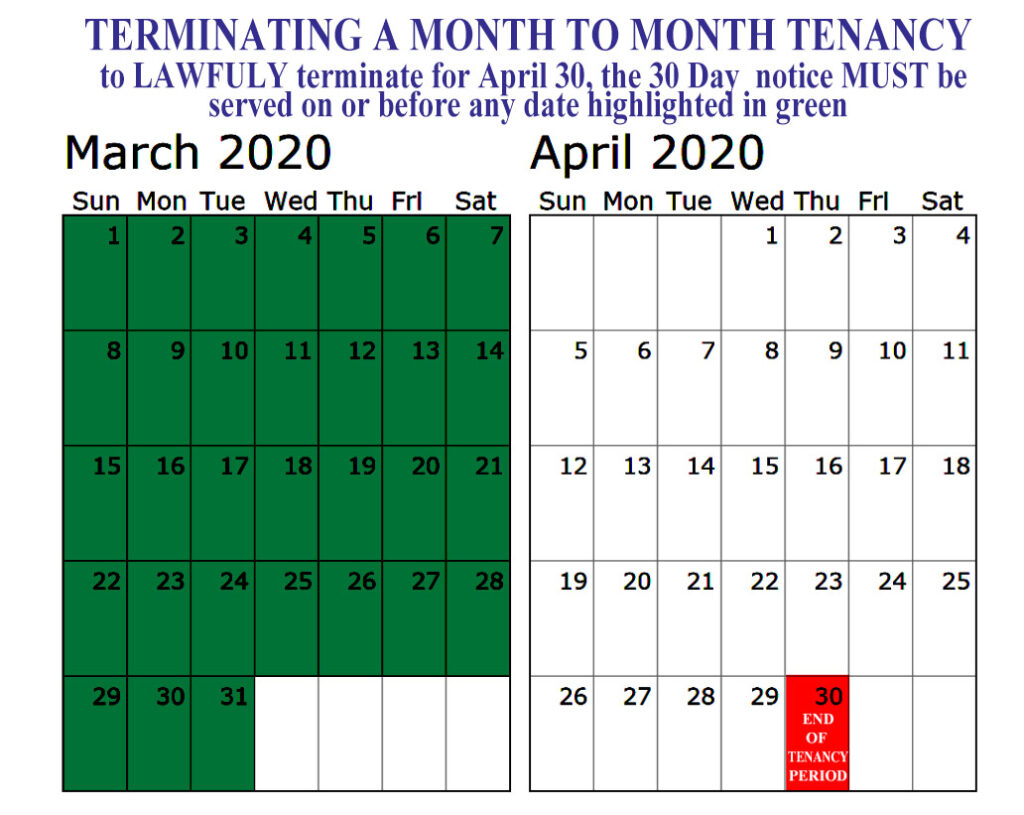 Your Alderman Has A Plan and You’re Not Going to Like It
Your Alderman Has A Plan and You’re Not Going to Like It
A new phrase has entered the landlord-tenant vernacular. “Invisible Evictions”. A few days ago, Chicago’s local neighborhood news portal, blockclubchicago.org posted a story about “Invisible Evictions” allegedly perpetrated by developers in Logan Square and Pilsen. The thrust of the story is that developers are quietly forcing renters out of those neighborhoods. The author is quick to point out the injustice of this situation pointing out that the tenants have not “missed a payment” nor “broken any rules”. This sounds TERRIBLE, right?!? How can those nasty developers do this??? I’ll tell you. The sentiment expressed in the article is representative of the war tenants’ rights advocates are waging against developers and, quite frankly, Western culture (yes, you read that right). It is a battle between property rights and the in vogue claim that housing is a “human right”. Let’s look closer.
The tenant’s plight?
The Block Club Chicago article starts with a true-life story of a nice lady who was “hit with” a 60-day eviction notice. The tenant had been living in what was deemed an “affordable” apartment (whatever that means) for the past five years along with some neighbors who resided in the building more than thirty years. As told, the residents were “stunned” at this development. And worse yet, the article points out, these seemingly innocent tenants weren’t kicked out because they didn’t pay rent, instead, they were going to be evicted because the building was sold. So, let me get this straight, an “invisible eviction” is an eviction where, what? a tenancy is lawfully terminated?
Normally, on this page, I like to talk about rental law and not policy. But, we are in the midst of an ideological war over housing policy right now, so please excuse what is likely to be more of a rant than a scholarly analysis.
Let’s examine this and try to extrapolate some law out of the factual situation presented. The article points out that the tenants were surprised at this turn of events. First, let’s get one thing clear. The sale of a building does NOT invalidate a lease. The sale of a building, in and of itself, does not give an old or new owner the right to evict a tenant, change lease terms, or even raise rent. If a tenant has a lease for a term, that lease stays in place until the end of the lease term (and longer if the landlord does not give the appropriate and required notice according to Chicago law). However, if the tenants do not have a lease or have an expired lease and are living “month-to-month” pursuant to Section 5-12-130(j) of the Chicago Residential Landlord and Tenant Ordinance (CRLTO), then they have tenancies that can be terminated, lawfully, upon proper advance notice. A month-to-month tenancy is terminated by serving a proper 30-day notice. That notice must be served at least 30 days prior to the end of the next full tenancy period. Thus, a tenant is going to get at least 30 days, but oftentimes between 30 to 60 days advance notice that their tenancy is ending. As I have discussed on this blog before, in the case of a person with an expired lease, the CRLTO requires that tenants get a 60 day notice. While the article does not get into the legalities of the notices served, I suspect that the nice lady tenant who received a 60 day notice at the start of the Block Club story was living on an expired lease (and if not, she was likely given more notice than the law requires). So these tenants were merely notified that their tenancy was ending lawfully. They were NOT evicted. This is not an “invisible eviction”. The lease was over and now it is time to go. This is a landlord who is going through the proper channels to terminate a tenancy. When a lease ends on June 30 and the tenant is contractually required to vacate on or before that date, we do NOT say the TENANT IS BEING EVICTED. We merely say that the tenant left at the end of the lease, as they have AGREED TO DO. As for a month-to-month tenancy, that kind of lease, whether oral or written, does not have a formal end of the lease term. It is more flexible and continues on until either the landlord or the tenant provide the proper advance written notice to terminate. That’s an invisible eviction?
A month-to-month tenancy is terminated by serving a proper 30-day notice. That notice must be served at least 30 days prior to the end of the next full tenancy period. Thus, a tenant is going to get at least 30 days, but oftentimes between 30 to 60 days advance notice that their tenancy is ending. As I have discussed on this blog before, in the case of a person with an expired lease, the CRLTO requires that tenants get a 60 day notice. While the article does not get into the legalities of the notices served, I suspect that the nice lady tenant who received a 60 day notice at the start of the Block Club story was living on an expired lease (and if not, she was likely given more notice than the law requires). So these tenants were merely notified that their tenancy was ending lawfully. They were NOT evicted. This is not an “invisible eviction”. The lease was over and now it is time to go. This is a landlord who is going through the proper channels to terminate a tenancy. When a lease ends on June 30 and the tenant is contractually required to vacate on or before that date, we do NOT say the TENANT IS BEING EVICTED. We merely say that the tenant left at the end of the lease, as they have AGREED TO DO. As for a month-to-month tenancy, that kind of lease, whether oral or written, does not have a formal end of the lease term. It is more flexible and continues on until either the landlord or the tenant provide the proper advance written notice to terminate. That’s an invisible eviction?
Are we living in the twilight zone? Any tenant that wants the safety and security of a “locked in” rent amount and/or a fir, certain and locked-in lease term should SIGN A WRITTEN LEASE. For so long as the lease is in force, the tenant is protected by the lease contract. It sure looks to me like the landlord in the Block Club story did everything right in order to terminate a tenancy. The tenant was not “evicted”. Being evicted is the result of a court process for people who stay in a property UNLAWFULLY (ie. the tenant gets a notice to leave and then they don’t leave). The author indicates that “these cases typically go unreported. Many can’t afford to fight an eviction in court, so when their landlord tells them to go, they go quietly”. First, there is no “case” to go unreported. There is no court involved here. The lease is over and the tenant is doing what they agreed to do (ie. leave at the end of the lease). Second, there is no “fight” to be had. A landlord has a right to terminate a tenancy upon legal notice (the tenant had that same right in the case of a month-to-month tenancy). They go, not because of some eviction proceeding, but because, contractually, they are obligated to vacate. (Let’s remember that they don’t own the rental property. They are tenants. The nature of a tenancy is that it is for a limited period of time.)
The Block Club author posits that while Logan Square and Pilsen don’t have high eviction rates, “evictions are happening in gentrifying neighborhoods – they’re just flying under the radar”. There’s a blatant misuse of the phrase “eviction” here and it is being used purposefully. Are long time residents being displaced? Tenants’ rights advocates say that displacement and gentrification is happening. You could use the term displacement. However, these tenants are not being evicted. There’s no court record against these tenants. There’s just a lease or a month to month tenancy that is over. Interestingly, the author actually acknowledges that the tenants had no lease, but that they wish they did. Sure they do, now that they’re being asked to leave. Are landlord and developers responsible for tenants who do not have the foresight to get a written lease?
The article’s author blames (what a shock) developers who are “forcing” tenants to leave when the owners sell, rehab, or flip their buildings “for profit”. Ummm…. it’s still the owner’s building, right? Where has this notion come from that a landlord does not have a right to profit from the landlord’s risk and capital? While it is politically expedient to blame developers who come in and buy these buildings, we conveniently forget that these buildings used to be owned by long-time landlords who have endured low rents and low growth in these neighborhoods who are “cashing out” and entering a whole new wealth class because they are able to take advantage of the opportunity to sell their building.
An even more unscrupulous method of eviction exists!
The Block Club author then suggests an even shadier, dirtier practice. Wait, there’s another way that landlords are evicting tenants outside of the law? Yes – and wait until you hear this one – instead of serving a notice and terminating a tenancy, tenants are being hit with large rent increases. The author quotes a tenant advocate who says that “if they said they’re not paying that $200 increase, then they would end up in eviction, but most people either pay it or move out”. Okay, let’s back up. As far as I know, as of right now (the ban on rent control has not been lifted at the time of this article), a landlord has a lawful right to charge whatever rate of rent the landlord chooses. So the tenants’ rights advocate is saying that if a landlord serves notice of a new rent amount to a month-to-month tenant (remember, rent cannot be changed during the term of a lease, although it can be changed at the end of a lease term), the tenant would end up in eviction court? Well, that’s true only if they broke the lease and didn’t pay the rent or refused to sign a new lease for higher rent and failed to move out. Instead, the tenant’s right’s activist suggests, they move out. Isn’t that the logical thing? If a tenant doesn’t want to rent for that market price, they can leave. The tenant’s rights activist calls these things “forced displacements or non-court evictions”. I call it a landlord and a tenant who can’t agree on the monthly rent.
But let’s look at this from another angle. Why does the landlord raise the rent? Is it bBecause they hate the people who have lived int he neighborhood for their whole life? Is it because the landlord wants to force people out? Is it because they are just plain damn greedy? No. Landlords raise the rent because providing safe, clean, and in-repair housing is a costly endeavor. The specific reason is even more simple. The City of Chicago is charging new fees for water bills. The County property taxes on multi-unit buildings have gone way up (and they’ll keep going way up if Fritz Kaegi gets his way). The time spent doing the “two stage screening process” in Cook County wastes time and costs money. Paying an attorney to help comply with all of the new and wondrous regulations promulgated by our governments that affect landlords costs money. The fees and charges and taxes and regulations are costing more and more and more! That raises the cost of providing housing. That increases the rent. The landlord didn’t do that. The Aldermen did it. The Cook County Board of Commissioners did it. The Illinois legislature and the Governor did it. Not. the. Landlord.
Uh oh, the politicians to the rescue
 So, where does this get us? To the politicians. We all know that most Chicago politicians love tenants. Why? Simple math provides an explanation. There are more tenants than there are landlords and more tenants means more votes. And politicians love votes. Well, in come the politicians, aided by the tenants’ rights groups, who are ready to propose creative and interesting new ways to wrestle property rights away from the landlords. There’s an old analogy that property rights are like a bundle of sticks. Each stick represents one of the incident rights to ownership like the right to occupy, the right to hold title, the right to sell, etc. The tenant’s rights advocacy groups are hell-bent on taking away those sticks from the bundle until all that is left for the landlord is the right to hold title, make repairs, and pay taxes.
So, where does this get us? To the politicians. We all know that most Chicago politicians love tenants. Why? Simple math provides an explanation. There are more tenants than there are landlords and more tenants means more votes. And politicians love votes. Well, in come the politicians, aided by the tenants’ rights groups, who are ready to propose creative and interesting new ways to wrestle property rights away from the landlords. There’s an old analogy that property rights are like a bundle of sticks. Each stick represents one of the incident rights to ownership like the right to occupy, the right to hold title, the right to sell, etc. The tenant’s rights advocacy groups are hell-bent on taking away those sticks from the bundle until all that is left for the landlord is the right to hold title, make repairs, and pay taxes.
So the Block Club article introduces us to Alderman Daniel LaSpata from the 1st Ward and suggests that he is going to support the “Good Cause/Just Cause Eviction Ordinance”. His 1st Ward predecessor, Proco Joe Moreno actually went down the path of trying to suggest such an ordinance (we blogged about it on this page). After landlords got wind of those efforts and showed up in force at his offices, Alderman Moreno withdrew the ordinance “for further study” and never presented it to the City Council. Basically, at the core of the Good Cause legislation is the concept that a tenant must be offered a renewal lease (the concept is that the tenant has a right to continued occupancy as long as they like) and if the tenant is not offered a renewal, the landlord will need to pay the tenant to leave. Back in 2018, Proco Joe Moreno was suggesting a payment of $10,600 to the tenant. The Block Club article suggests that with new progressive Alderman in the City Council, there is more support for this ill-considered and ridiculous idea. The article makes mention of the current fight to lift the ban on rent control being waged in the Illinois State House. Rent control goes hand in hand with the right to a lease renewal because the real goal is to require a renewal and also cap the amount of increased rent. There are plenty of Aldermen who will push to impose rent control in Chicago the minute the ban is lifted. Guess what will happen to property values then?
Landlords need to understand that their bundle of sticks is getting smaller. Tenants, aided by public interest groups and tenant advocates, are slowly stealing sticks out of that bundle. It is not hyperbole to suggest that there is a war being waged on landlords across the country and landlords need to be aware of it and need to get in the fight before their bundle is gone.
